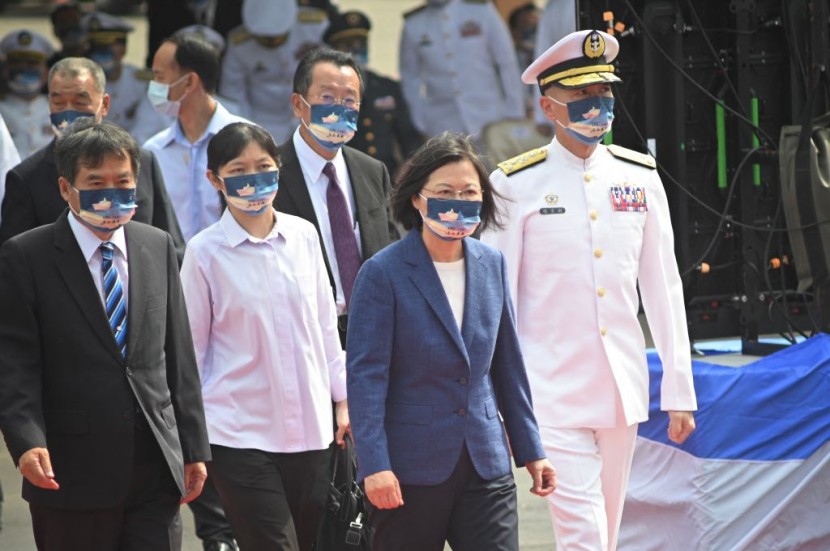
Taiwan's defense minister issued a warning on Wednesday, saying that any Chinese fighter planes or drones that violate Taiwan air space will be considered a "first strike" as the island attempts to fortify its defenses in defiance of increasing military pressure from Beijing.
Taiwanese Defense Minister Chiu Kuo-cheng told parliamentarians about China's new intimidatory tactics, which have seen Chinese airplanes and drones fly near Taiwan.
Taipei's territorial limit is 12 nautical miles (22.2 kilometers) from its coastline, and Chiu did not say how the government would react if People's Liberation Army (PLA) planes crossed that line.
Chiu Kuo-cheng remarked that Taiwan's position in the past was "we won't be the first to strike, which meant we will not fire the first shot without (China) firing artillery shells or missiles first."
At a legislative committee hearing, he said that the meaning had shifted now that China has employed devices like drones. Hence, any airborne crossing into Taiwan airspace is regarded as a "first strike."
President Tsai Ing-wen said in the early part of the year that Taiwan's military would take appropriate and "forceful countermeasures" against Chinese gray area combat methods, which include "drone harassment."
Signs of China's Possible Invasion of Taiwan
Amid the continued Taiwan-China conflict, an ex-CIA analyst presented signs that would reveal China's plans to invade Taiwan in full force.
An article written by John Culver and published by the Carnegie Endowment for International Peace details the indicators that China is planning an invasion of Taiwan. Culver's judgment is based on PLA combat preparations 18 to 24 months before invading Taiwan.
In Culver's estimation, the increased stockpiling of ballistic, cruise, anti-air, and air-to-air missiles and rockets to loosen up coastal regions would be one of the first obvious signals at least a year before "D-Day."
Culver noted that China would try to protect its economy, military, and other vital industries against disruptions and penalties by taking precautions as the Taiwan-China conflict escalates further.
Additionally, emergency supplies would be hoarded, vital exports would be placed on hold, measures would be made to curb demand or limit products, and critical inputs would be prioritized for military production. The government of China also plans to limit the trips abroad of its leaders and highly prominent officers.
Beijing will also aim to psychologically prepare the public for a lengthy battle with tens of thousands of soldiers and civilian losses from US and Taiwan retaliation attacks, Culver wrote in the article.
However, the expert pointed out that if a war were planned for 2024, indicators would have shown by now, but they haven't, indicating that it's improbable that one will break out the following year.
Defense Secretary Lloyd Austin believes that a Chinese invasion of Taiwan is not imminent and the US is committed to "helping Taiwan defend itself."
Taiwan Will Not Depend on Foreign Allies To Defend Its Sovereignty
On Wednesday, while praising a US guarantee for the democratically ruled island's protection, Taiwanese President Tsai Ing-wen remarked that Taipei would not rely on outsiders for defense.
The comments by Pres. Tsai, filmed in advance and shown at a symposium in Washington, DC, came after US President Joe Biden pledged in September to defend Taiwan against an "unprecedented invasion" by China.
Tsai commended the Biden administration and US Congress for upholding Taiwan's security and current US military equipment purchases amid the Taiwan-China conflict.
"But we will not depend on others to come to our own defense," Pres. Tsai said.
The Taiwanese head of state reiterated that Taiwan will always ensure the safety of its people and do its best to safeguard its democratic system.
Critics believe that, whether on purpose or not, Biden undermined a US posture of not taking a position on Taiwan's independence, despite White House assurances.
Related Article : Russia, China Protect, Help North Korea as Kim Jong Un Enjoys 'Blanket of Protection' from 2 Nations, US Claims at UN Meeting








